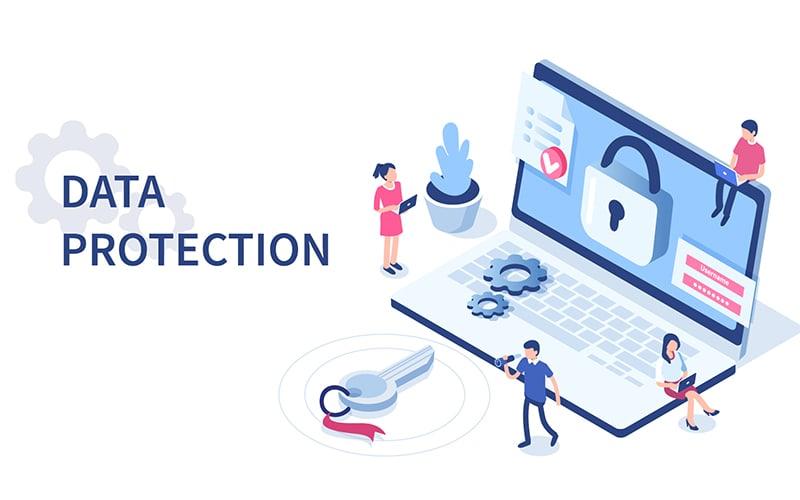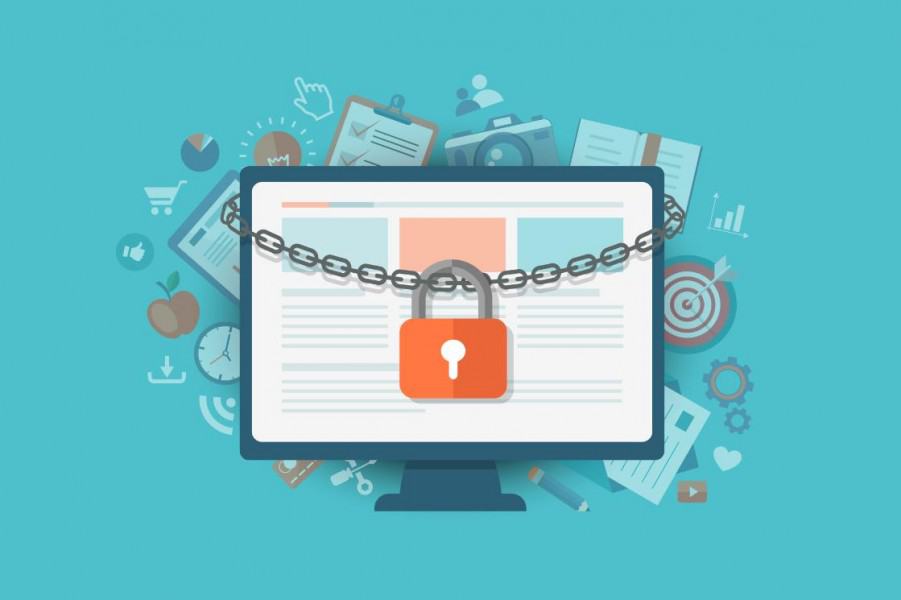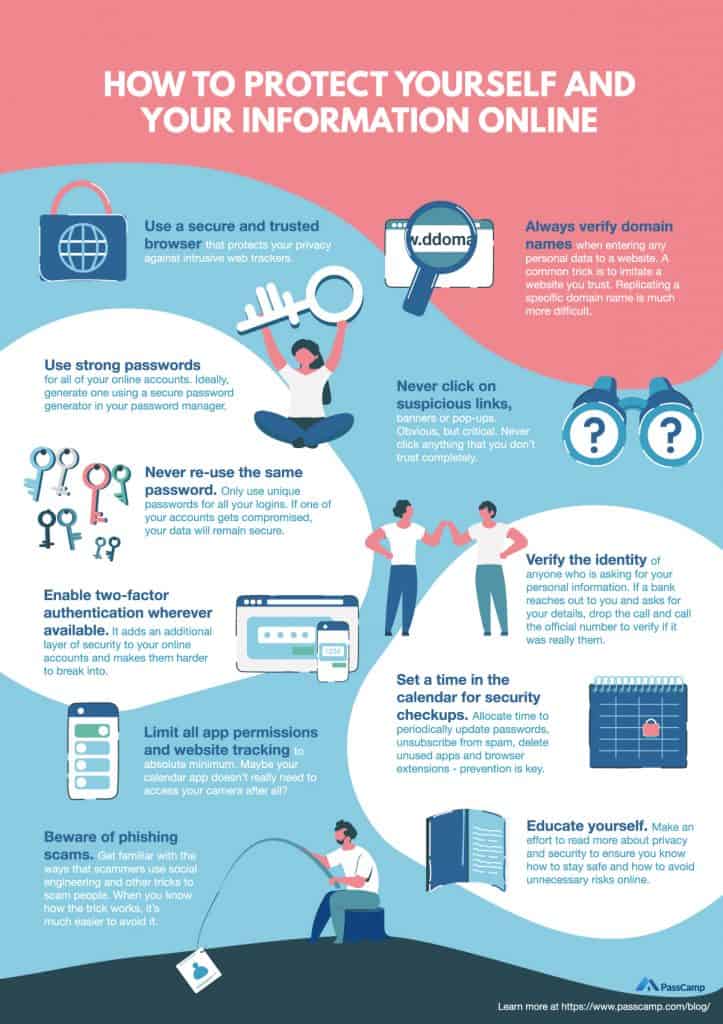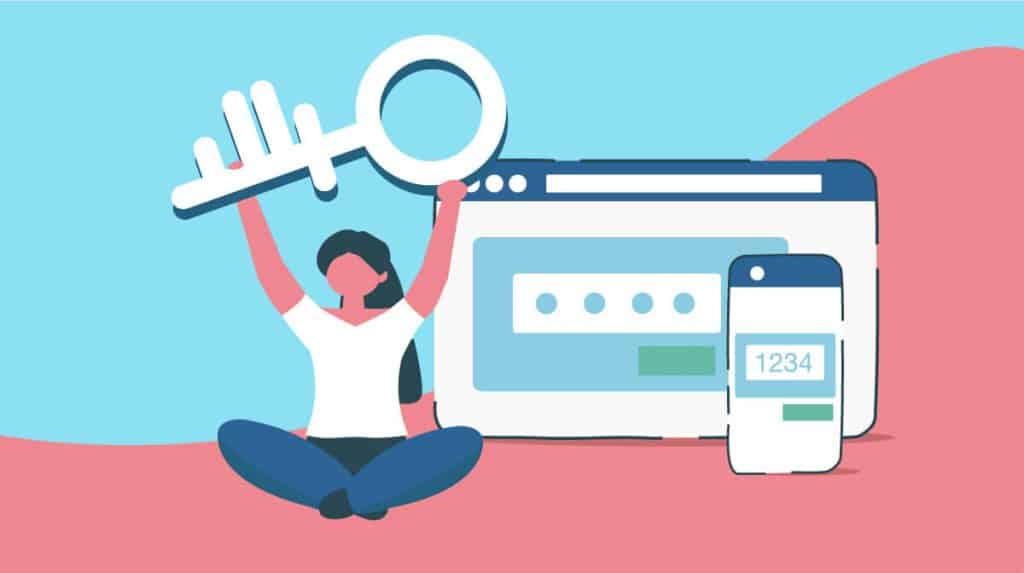How To Keep My Personal Information Safe?
In an increasingly digital world, protecting your personal information is more important than ever. From passwords and social security numbers to credit card details and personal addresses, your sensitive data is at risk every time you go online. But fear not, because in this article, we will guide you through some simple yet effective steps to safeguard your personal information and ensure your online safety. So, whether you’re a tech-savvy individual or someone who still struggles with the internet, read on to discover the best practices for keeping your personal information safe and secure.
Use Strong Passwords
Create complex passwords
One of the simplest and most effective ways to protect your personal information is by creating strong and complex passwords. Avoid using easily guessable passwords such as your name, birthdate, or a simple sequence of numbers. Instead, use a combination of uppercase and lowercase letters, numbers, and special characters. The longer and more random your password is, the more secure it will be against brute force attacks.
Avoid using common passwords
Using common passwords not only makes it easier for hackers to guess your password, but it also puts all your accounts at risk. Avoid using passwords such as “password,” “123456,” or “qwerty.” These are among the most commonly used passwords and can be easily cracked by cybercriminals. Instead, opt for unique and unpredictable combinations of characters for each of your accounts.
Use a password manager
Managing multiple complex passwords can be challenging. That’s where a password manager comes in handy. A password manager is a secure tool that stores all your passwords in an encrypted format. It also generates strong passwords for you, eliminating the need to remember them all. With a password manager, you only need to remember one master password to access all your other passwords. This not only makes it easier to maintain strong passwords but also improves overall security.
Enable Two-Factor Authentication
Understand two-factor authentication
Two-factor authentication (2FA) adds an extra layer of security to your accounts. It requires you to provide two types of verification before accessing your account. Typically, this includes something you know, like a password, and something you have, like a unique code sent to your phone. By implementing 2FA, even if someone manages to guess or obtain your password, they still cannot access your account without the second form of verification.
Enable it for all your accounts
Whenever possible, enable two-factor authentication for all your online accounts. This includes email accounts, social media platforms, banking websites, and any other platforms that offer this extra security feature. By doing so, you significantly reduce the risk of unauthorized access, as hackers would need both your password and the second form of authentication to gain entry.
Use authentication apps instead of SMS
While SMS-based two-factor authentication is still widely used, it is not the most secure option. Hackers can intercept SMS codes, especially with techniques like SIM swapping. To further enhance security, consider using authentication apps like Google Authenticator or Authy. These apps generate unique codes that refresh every few seconds, making it nearly impossible for hackers to guess or intercept.
Be Cautious with Personal Information Sharing
Think twice before sharing personal information online
In the digital age, it’s important to be cautious about the personal information you share online. Before providing personal details such as your address, phone number, or social security number, ask yourself if it is really necessary. Avoid oversharing on social media platforms and be mindful of the potential risks associated with exposing sensitive information to the public.
Be mindful of what you share on social media
Social media platforms are a treasure trove of personal information for cybercriminals. Be cautious about what you share on these platforms, as even seemingly innocent details can be used against you. Avoid sharing your full birthdate, home address, or vacation plans. Adjust your privacy settings to control who can see your posts, and be wary of accepting friend requests from people you don’t know.
Verify the legitimacy of websites before providing personal details
Before entering any personal information on a website, take a moment to verify its legitimacy. Check for secure connections by ensuring the website’s URL starts with “https://”. Look for trust indicators such as security seals or a lock icon in the address bar. Be skeptical of websites that request excessive personal information or seem suspicious in any way. When in doubt, it’s better to refrain from providing any information that could potentially be misused.
Secure Your Devices
Set up strong device passwords and lock screens
One of the easiest ways to protect your personal information is by securing your devices with strong passwords and lock screens. Ensure that your mobile phone, tablet, or computer is protected with a password or PIN that is not easily guessable. Avoid using common combinations such as “1234” or “0000.” Furthermore, enable biometric authentication options like fingerprint or face recognition if your device supports them.
Enable full-disk encryption
Full-disk encryption is a powerful security feature that ensures the data on your devices remains private even if they fall into the wrong hands. By enabling full-disk encryption, all the data on your device is scrambled and can only be decrypted with the correct encryption key or password. This protects your personal information from unauthorized access, especially if your device is lost or stolen.
Keep your operating systems and software up to date
Regularly updating your operating systems and software is crucial for maintaining the security of your devices. Software updates often include important security patches that address known vulnerabilities. By keeping your devices up to date, you ensure that any potential weaknesses are patched, reducing the risk of cyberattacks or unauthorized access to your personal information.

Use Secure Wi-Fi Networks
Avoid using public Wi-Fi for sensitive activities
Public Wi-Fi networks, such as those found in cafes, airports, or hotels, are often unsecured and vulnerable to hacking. Avoid accessing or transmitting sensitive information, such as banking details or login credentials, when connected to public Wi-Fi networks. Cybercriminals can intercept your data on these networks, potentially leading to identity theft or unauthorized access to your accounts.
Use a VPN when accessing public networks
If you frequently use public Wi-Fi networks, consider using a Virtual Private Network (VPN) for added security. A VPN creates a secure and encrypted connection between your device and the internet, preventing anyone on the same network from intercepting your data. By using a VPN, you can browse the internet and access sensitive information with peace of mind, knowing that your connection is secure.
Secure your home Wi-Fi with a strong password
While public Wi-Fi networks are often the riskiest, it’s important not to overlook the security of your home Wi-Fi network. Set up a strong and unique password for your Wi-Fi router to prevent unauthorized access. Additionally, consider enabling network encryption, such as WPA2, to protect your data from being intercepted by anyone within range of your Wi-Fi signal.
Beware of Phishing Attacks
Be cautious with suspicious emails and messages
Phishing attacks are a common tactic used by cybercriminals to trick individuals into revealing their personal information. Be cautious when receiving emails or messages that ask for sensitive information, such as account details or passwords. Check for spelling mistakes, URLs that differ from the official website, and suspicious attachments or links. When in doubt, contact the organization or individual directly to verify the authenticity of the communication.
Verify the legitimacy of websites and links
Before clicking on any link or visiting a new website, take a moment to verify its legitimacy. Hover over links to see the URL they point to and ensure they match what you are expecting. Be wary of shortened URLs or unfamiliar websites that may be disguised as legitimate sources. It’s always better to be safe than sorry, so double-check before providing any personal information.
Never share personal information through unsecured channels
When sharing personal information, ensure that you are doing so through secure and encrypted channels. Avoid sharing sensitive data through unsecured methods such as plain email or messaging platforms that lack end-to-end encryption. If you need to provide personal information, use secure methods such as encrypted email services or secure file-sharing platforms to protect your data from interception.

Regularly Back Up Your Data
Create backups of important files and documents
Data loss can occur due to various reasons, including hardware failure, theft, or malware attacks. To safeguard your personal information, regularly create backups of important files and documents. Store them in a separate location, such as an external hard drive or cloud storage, to ensure they are protected even in the event of a disaster.
Utilize cloud storage services
Cloud storage services offer a convenient and secure way to back up your data. Providers like Dropbox, Google Drive, or Microsoft OneDrive offer ample storage space that can be accessed from multiple devices. By utilizing cloud storage, you ensure that your data is always accessible, even if your devices are lost or damaged.
Store backups offline in secure locations
While cloud storage is convenient, it’s still essential to have offline backups in case of unforeseen circumstances. Keep physical copies of important documents and files in secure locations, such as a locked cabinet or a safe. Storing backups offline provides an extra layer of protection, as they are not susceptible to online threats like hacking or data breaches.
Keep Software and Antivirus Programs Updated
Enable automatic updates for software
Software updates are not just about adding new features; they often patch security vulnerabilities that could be exploited by cybercriminals. Enable automatic updates for your operating system, web browsers, and other software to ensure you are always using the latest and most secure versions. By doing so, you minimize the risk of falling victim to known security flaws.
Install reputable antivirus and anti-malware software
Antivirus and anti-malware software play a critical role in protecting your devices from various online threats. Choose a reputable security software provider and regularly update and scan your devices for potential threats. These programs can detect and remove malicious software, such as viruses or spyware, that could compromise your personal information.
Run regular scans for potential threats
In addition to having antivirus software installed, it’s crucial to run regular scans to identify any hidden threats. Schedule automatic scans on your devices or manually initiate scans at regular intervals. By doing so, you can proactively detect and remove any malware or other malicious programs that might have slipped through your defenses.

Be Mindful of Online Shopping
Shop from reputable online retailers
When shopping online, it’s essential to choose reputable and trusted retailers. Stick to well-known platforms and verified sellers to reduce the risk of falling victim to scams or counterfeit products. Check for customer reviews, secure payment options, and clear return policies before making a purchase. By doing your research and shopping from reliable sources, you can ensure a safe and secure online shopping experience.
Use secure payment methods
When making online purchases, use secure payment methods that offer buyer protection. Credit cards and reputable online payment services, such as PayPal, often provide additional layers of security against fraudulent transactions. Avoid sharing sensitive payment information via email or insecure platforms, and never provide your credit card details on unsecured websites.
Check for secure website connections (https)
Before entering any sensitive information on a website, ensure that it is secure by checking for a secure connection. Look for the “https” in the website’s URL, along with a padlock icon in the address bar. This indicates that the website is using encryption to protect the data you transmit. Avoid entering personal information on websites that do not have a secure connection, as it could be intercepted by hackers.
Educate Yourself on Online Threats
Stay informed about the latest cybersecurity risks
Cybersecurity threats are constantly evolving, making it crucial to stay informed about the latest trends and risks. Keep an eye on reputable sources of information, such as cybersecurity blogs, news websites, or official security advisories. By understanding the current landscape, you can better protect yourself from emerging threats.
Learn about common scams and tactics used by cybercriminals
Understanding the common scams and tactics employed by cybercriminals is key to avoiding falling victim to their schemes. Educate yourself about phishing attacks, social engineering, ransomware, and other prevalent forms of cyber threats. This knowledge will help you recognize suspicious activities and protect your personal information effectively.
Be aware of different types of malware and how they can affect you
Malware refers to malicious software designed to disrupt, damage, or gain unauthorized access to your devices. Educate yourself about different types of malware, including viruses, worms, trojans, and ransomware. Understand how they are distributed and the potential consequences they can have on your personal information. Armed with this knowledge, you can take proactive steps to prevent infections and mitigate the damage caused by malware.
By following these tips and implementing robust security practices, you can significantly enhance the protection of your personal information and reduce the risk of falling victim to cybercrimes. Remember to always be vigilant and keep up with the latest security best practices to stay one step ahead of cybercriminals.




